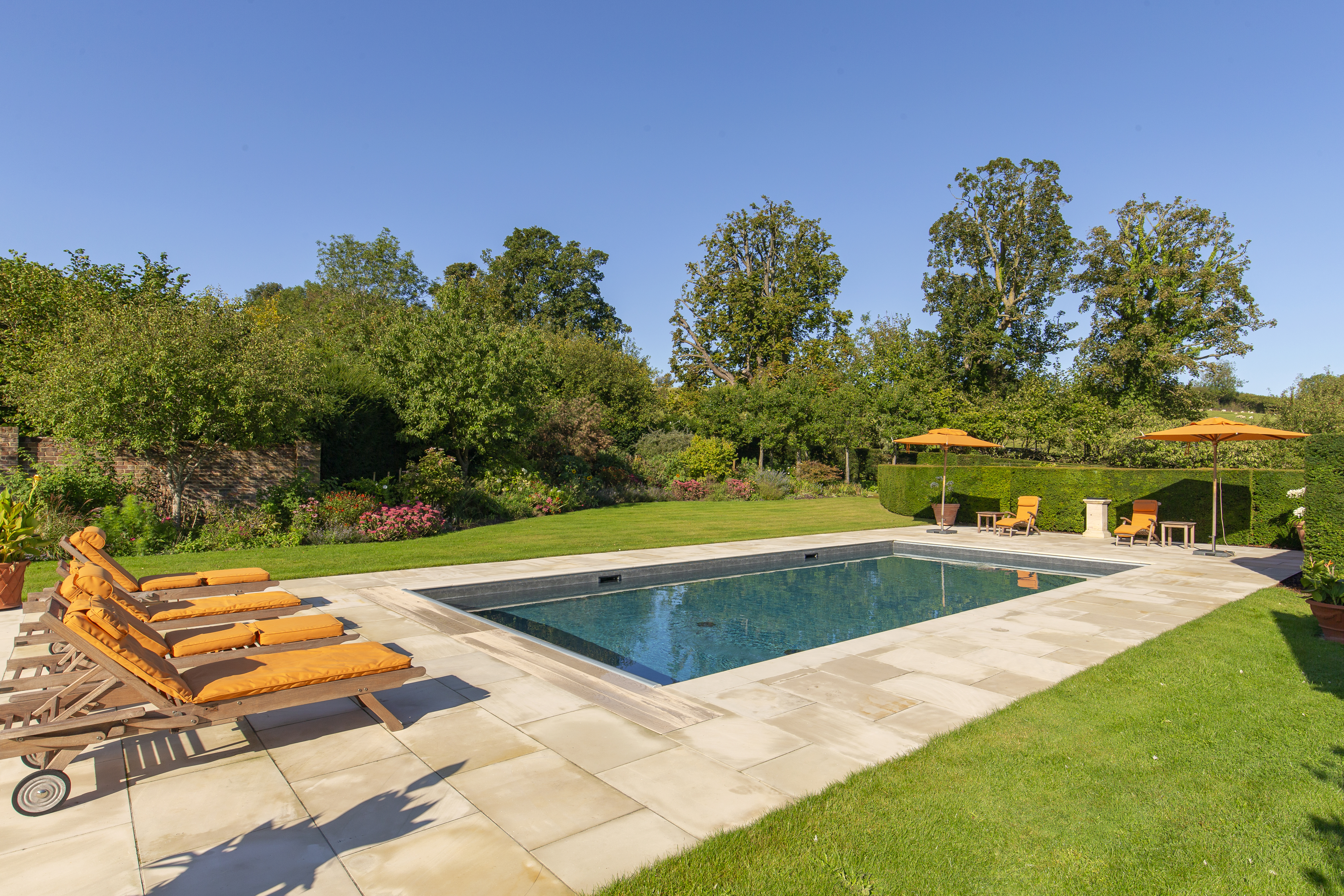
Are you looking to install a swimming pool? This guide will help you estimate your in-ground pool costs in Atlanta so you can stay peachy and cool all summer long.
Installing an indoor pool costs $95,000. However, your total can fall between $40,000 and $200,000. A pool installer can factor in the type and size of the pool for your quote.


Installing an indoor pool costs $95,000 on average, but the price can range anywhere from $10,000 to $470,000.
The size of the pool has a big impact since the project costs $70 to $315 per square foot.
Aboveground indoor pools are significantly more affordable at $10,000 to $36,000, whereas in-ground indoor pools range from $20,000 to $200,000 on average.
The type of liner you choose also has an impact. A concrete liner starts at $20,000, and fiberglass starts closer to $40,000.
The labor for indoor pool installation accounts for 25% to 50% of the total cost.
Picture taking an afternoon dip no matter what the weather is up to. Indoor pool costs range from $10,000 to $470,000, depending on the material and whether you build an enclosure. On average, you'll pay $95,000 for the upgrade, which can change depending on the pool and your home's structure. The size of the pool plays a large role in the cost as well, at about $70 to $315 per square foot.
As you may expect, several factors set indoor swimming pool costs apart from installing a backyard pool. This guide breaks down all of the considerations when budgeting for a new indoor pool.
An indoor pool consists of the pool structure, enclosure, dehumidification system, and supporting plumbing, electricity, and accessories. When seeking a swimming pool installer near you, consider all these cost factors.
Similar to pools outside your home, the cost of a semi-inground pool or aboveground pool is less than an in-ground model.
Aboveground indoor pools: These cost $10,000–$36,000, and you'll pay less for the cost of an aboveground pool that’s indoors because most come in prefabricated designs.
In-ground indoor pools: These are more costly at $20,000–$200,000, not including an enclosure. In-ground pool costs are higher due to the added excavation and custom design factors.
A prefabricated pool delivered in one or several pieces costs $20,000 to $90,000. Due to their bulky size, parts of the pool cost more to ship. Since the sky's the limit with custom options, you'll pay anywhere from $30,000 to $110,000. Custom designs include unique pool shapes and accessories like steps, ladders, and currents.
Building an indoor pool costs $70 to $315 per square foot, but it varies between prefabricated or custom-made options. Standard pool sizes cost less than unique shapes and depths. A few common square and rectangular shapes include:
| Size (Feet) | Average Cost |
|---|---|
| 12x20 | $16,700–$75,000 |
| 12x24 | $20,000–$90,000 |
| 16x32 | $35,600–$160,000 |
| 20x40 | $55,600–$250,000 |
| 30x50 | $104,000–$470,000 |
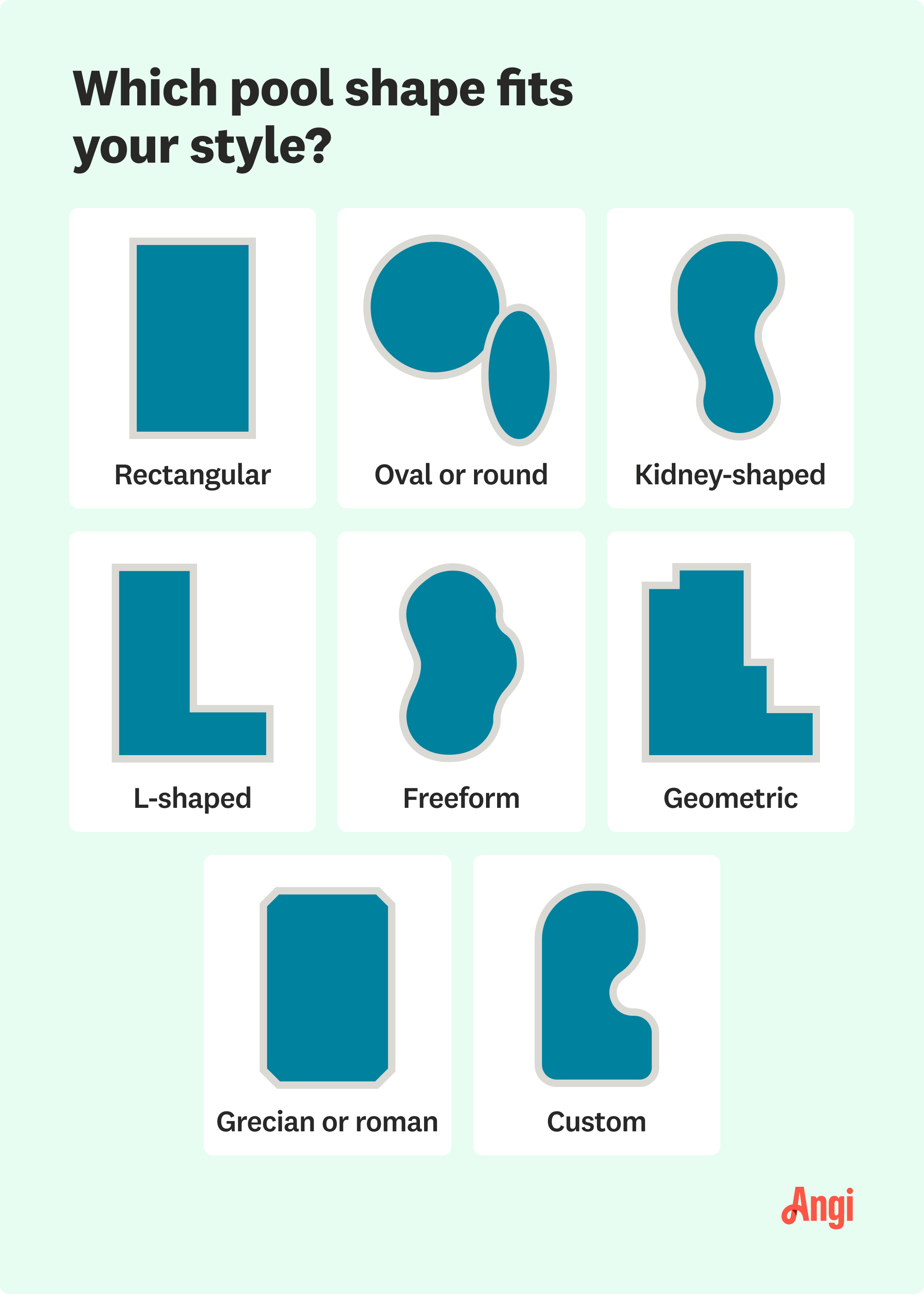
You'll encounter three main types of pool liners: vinyl, concrete, and fiberglass. The lower the long-term maintenance costs, the higher the up-front price. Here's what to know about each pool material.
| Type of Liner | Average Cost |
|---|---|
| Concrete | $20,000–$90,000 |
| Vinyl | $30,000–$65,000 |
| Fiberglass | $40,000–$85,000 |
Concrete: Concrete indoor pools cost $20,000–$90,000. They come in custom and prefabricated designs shipped in precast shapes. With proper maintenance, concrete pools last up to 75 years.
Vinyl: You'll pay $30,000–$65,000 for a vinyl pool constructed on-site. While they’re easy to maintain, you'll need to pay the cost to replace a vinyl pool liner—around $2,300—every 10 years.
Fiberglass: A prefabricated fiberglass indoor swimming pool costs $40,000–$85,000. While trickier to customize, they’re quicker and easier to install than custom concrete models. Fiberglass pools last 25 years and are relatively easier to maintain.
Are you more of a pool lounger or a lap swimmer? Each common type of indoor pool design comes with a related price tag.
| Type of Indoor Pool | Average Cost |
|---|---|
| Plunge | $10,000–$30,000 |
| Basic | $20,000–$90,000 |
| Endless | $50,000–$60,000 |
| Lap | $50,000–$100,000 |
| Saltwater | $156,000–$200,000 |
Indoor plunge pool: Plunge pools are deeper and smaller than traditional pools. Depending on size and custom additions, a plunge pool costs $10,000–$40,000.
Basic indoor pool: If you're envisioning a traditional 12-by-24-foot pool for indoor parties, you'll pay $20,000–$90,000. Prices fluctuate with the size, dehumidification system, enclosure, and add-ons.
Endless indoor pool: An endless pool provides an ongoing current and costs $50,000–$60,000. The system allows you to swim to your heart's content in a pool with minimal square footage.
Indoor lap pool: Go the distance with the longest pool on the market. An indoor lap pool costs $50,000–$100,000 due to its large size and enclosure.
Indoor saltwater pool: Indoor saltwater pool prices range from $156,000–$200,000. Saltwater pool costs include a unique saltwater generation system and require a specialized technician.
Labor for pool installation accounts for 25% to 50% of the total cost, or $23,000 to $60,000. The cost to hire a local in-ground pool installer varies with excavation, additional plumbing, electrical alterations, or customization.
The cost to build an indoor pool includes additional work. At a minimum, you’ll need to install a dehumidification system to handle the excess humidity. Other jobs include installing the pool enclosure, plumbing, and electrical, along with added features. Before you can dive in, consider the following expenses.
Maintaining your home's humidity at a perfect balance of 30% to 50% is no small feat with a large body of water. Indoor swimming pools, even if they’re in a separate enclosure, require a dehumidification system.
| Type of Dehumidification System | Average Cost |
|---|---|
| Whole home | $1,300–$2,800 |
| Ventilation based | $4,000–$10,000 |
| Mechanical refrigeration | $4,000–$20,000 |
Whole home: The cost of a whole-house dehumidifier ranges from $1,300–$2,800 and can reach $8,000 for a large pool and enclosure. These systems are best if your pool is in an attached area of your home, like a basement or enclosed patio.
Ventilation based: Ventilation dehumidifiers cost $4,000–$10,000. The system uses outside air to balance the pool area and cut humidity levels. However, this isn't ideal during hot and humid summers unless you add a refrigeration element.
Mechanical refrigeration: Mechanical refrigeration is the most traditional system for indoor pools and the most expensive at $4,000–$20,000. The system pulls outdoor air over a refrigeration coil to cool it down and remove the humidity.
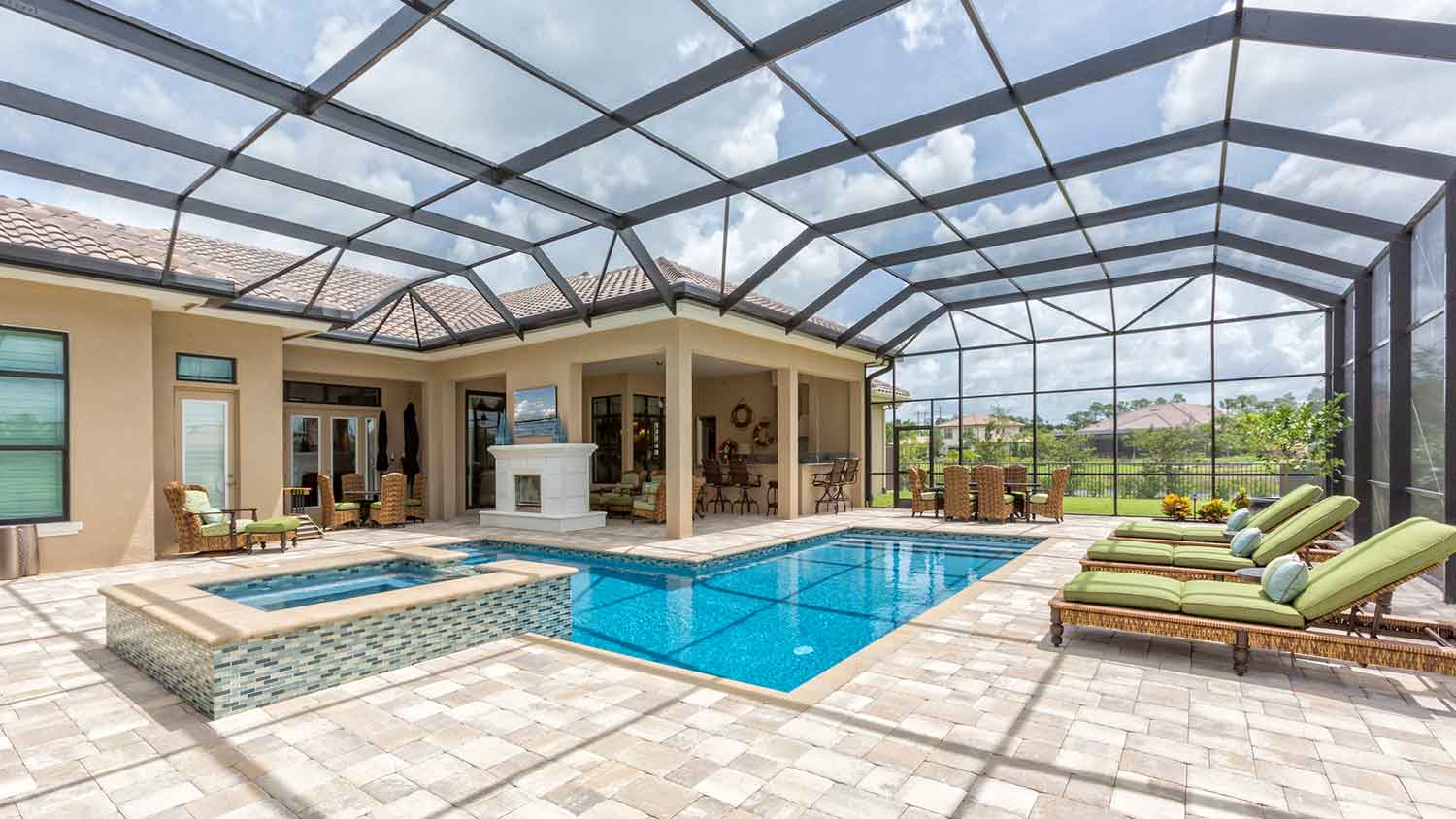
You’ll need an indoor space to house your pool, and retrofitting your home for a pool costs $40,000 to $200,000. Building an enclosed space over a pool has a slightly lower price range. The cost of a pool enclosure ranges from $1,000 to $30,000, or an average of $13,000.
Your pool enclosure must include access to electricity, plumbing, and drains to support the system. The price will depend on the pool size, proximity to plumbing and outlets in your home, and special pool features. Here are a few related costs:
| Electrical and Plumbing Elements | Average Cost |
|---|---|
| Filter and pump | $500–$2,000 |
| Relocating pipes | $360–$2,000 |
| Dedicated circuit | $600–$11,000 |
| Electrical subpanel | $400–$1,800 |
| Bonding and grounding (above ground pool) | $200–$300 |
A pool heat pump costs $1,000 to $9,500 depending on the size and type of pool. You can also choose from several heat pump fuel sources. Electric heat pumps are more wallet-friendly, while solar ones cost up to $9,000.
It's crucial to install a vapor barrier in the walls surrounding your indoor pool. The installation costs about $0.50 to $0.75 per square foot. The extra layer protects against mold, rust, water damage, and pests.
If your indoor pool is an in-ground design, you’ll have pool excavation costs. Digging the hole costs $4,000 to $10,000, depending on the placement. A basement pool with existing concrete surrounding it lowers costs.
An indoor pool can elevate your interior design. Tiling a pool costs $3,000 to $20,000, but some tile prices reach $100 per square foot.
The cost of construction permits for an indoor pool ranges from $200 to $2,000. The cost depends on whether you're building an extension of your home and additional features, such as a patio.
Beyond putting in a pool, there are some ongoing costs that factor into the total indoor pool cost—from maintenance to insurance.
Maintenance costs: Without outdoor elements like rain, freezing temperatures, and leaves, you’ll spend less on maintenance for your indoor pool. Swimming pool maintenance costs about $15 a month for chemicals and $25–$50 per hour to hire a pool cleaner in your area.
Home insurance: Adding an indoor pool increases home insurance rates. However, the rates vary significantly depending on your current plan. Liability insurance may be necessary to cover the cost of someone getting injured in or around your pool.
Taxes: Adding an indoor pool to your home can increase the cost of your property taxes because it improves the property and increases the home’s value.
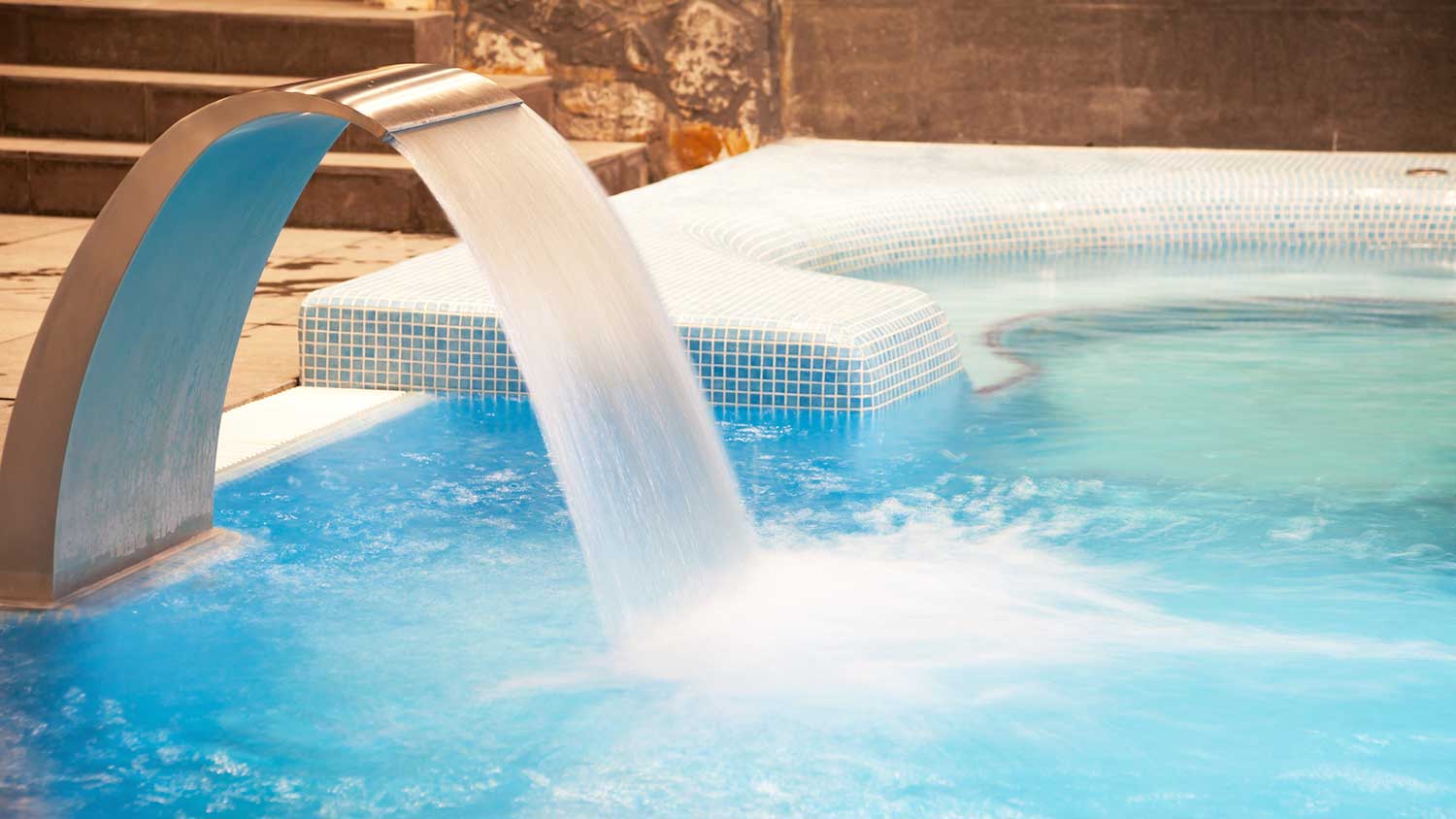
You can add extra features to your pool for aesthetics or accessibility. A water feature can transform your pool into a hidden indoor grotto, while an infinity edge can give your space a high-end spa-like feel. Everything from the lighting to the type of entrance (whether it’s steps or a sloped entrance) will also impact the total cost of your indoor pool. Extra expenses could include:
Waterfall cost: $100–$3,500
Pool grotto cost: $5,000–$10,000
Infinity pool cost: $80,000–$155,000
Pool steps: $1,400–$1,900 ($65 per linear foot)
Sloped stepless entrance: $30,000–$60,000
Automatic pool cover: $5,000–$22,000
Vinyl pool cover: $1,200–$1,300
Mesh pool cover: $1,500–$3,000
Pool lighting: $500–$1,800
It may be tempting to install a basic indoor pool and skip out on the labor costs, but this type of job is best left to a pool installation company. In fact, you’ll likely need to hire a structural engineer who can draft up plans before you can even get a permit for construction.
DIY installation can cause a number of serious issues. At best, you may fight a losing battle against mold and mildew because of improper dehumidification. The pool chemicals, if not properly ventilated, can also impact your home’s air quality. At worst, an indoor pool can compromise the structural integrity of your home. For your own safety, don’t attempt this project without a licensed professional.
Building an indoor pool is no small investment, but there are ways to simplify the design. Opting for an aboveground pool will save significant cash on materials, installation, and maintenance. Here are some additional budget-saving tips:
Opt for a vinyl pool lining for a lower up-front price and a fiberglass lining for lower maintenance costs.
Build the pool in an existing enclosed space on your lawn instead of excavating directly in your home.
Plan your pool around your current electrical and plumbing system to avoid additional labor.
Keep the square footage of your pool small and choose from standard measurements.
Opt for a prefabricated pool when possible.
On average, the ROI on a pool is between 7% and 8%, meaning most homeowners don’t get back anywhere near the amount they spent. That said, indoor pools have the unique advantage of adding square footage to your home, and they can be used year-round in colder climates. This is attractive to some buyers, but others won’t want to deal with the maintenance of a pool.
At the end of the day, even with a relatively low ROI, it’s hard to put a price on enjoyment. A pool provides a convenient way to work out, relief during hot weather, and the opportunity to host summer barbecues. If you use your pool a lot and you don’t mind the upkeep, it’s money well spent.
Home is the most important place on earth, which is why Angi has helped more than 150 million homeowners transform their houses into homes they adore. To help homeowners with their next project, Angi provides readers with the most accurate cost data and upholds strict editorial standards. We extensively research project costs to develop the pricing data you see, so you can make the best decisions for you and your home. We rely on reputable sources, including the U.S. Bureau of Labor Statistics, academic journals, market studies, and interviews with industry experts—all to ensure our prices reflect real-world projects.
Want to help us improve our cost data? Send us a recent project quote to [email protected]. Quotes and personal information will not be shared publicly.
From average costs to expert advice, get all the answers you need to get your job done.

Are you looking to install a swimming pool? This guide will help you estimate your in-ground pool costs in Atlanta so you can stay peachy and cool all summer long.

A pool remodel can transform your entire yard. Find out average pool remodel costs in Atlanta and get your project rolling.
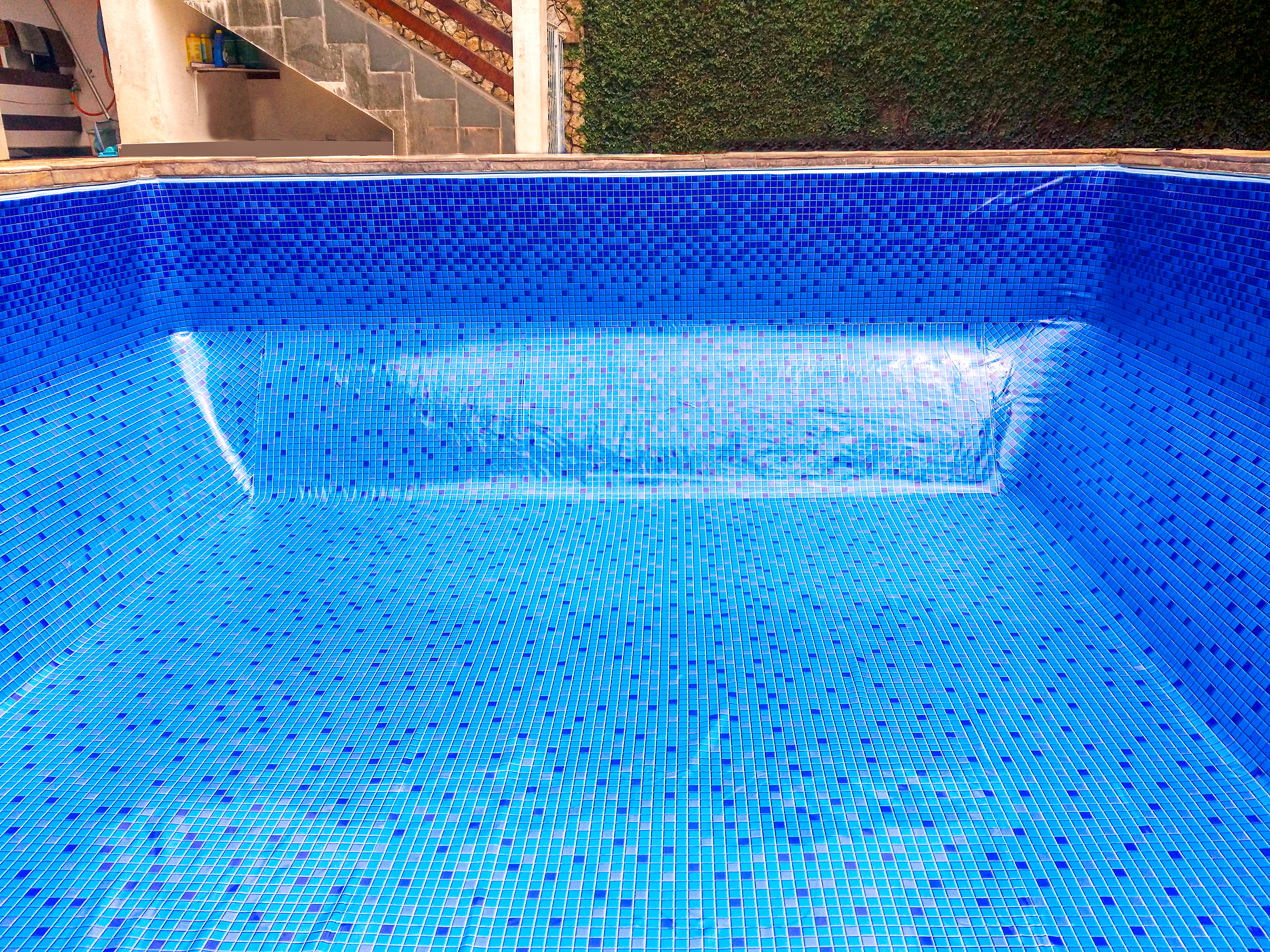
Georgia has a longer-than-average swimming season, so make sure you’re prepared. This guide runs through pool liner replacement costs in Atlanta.
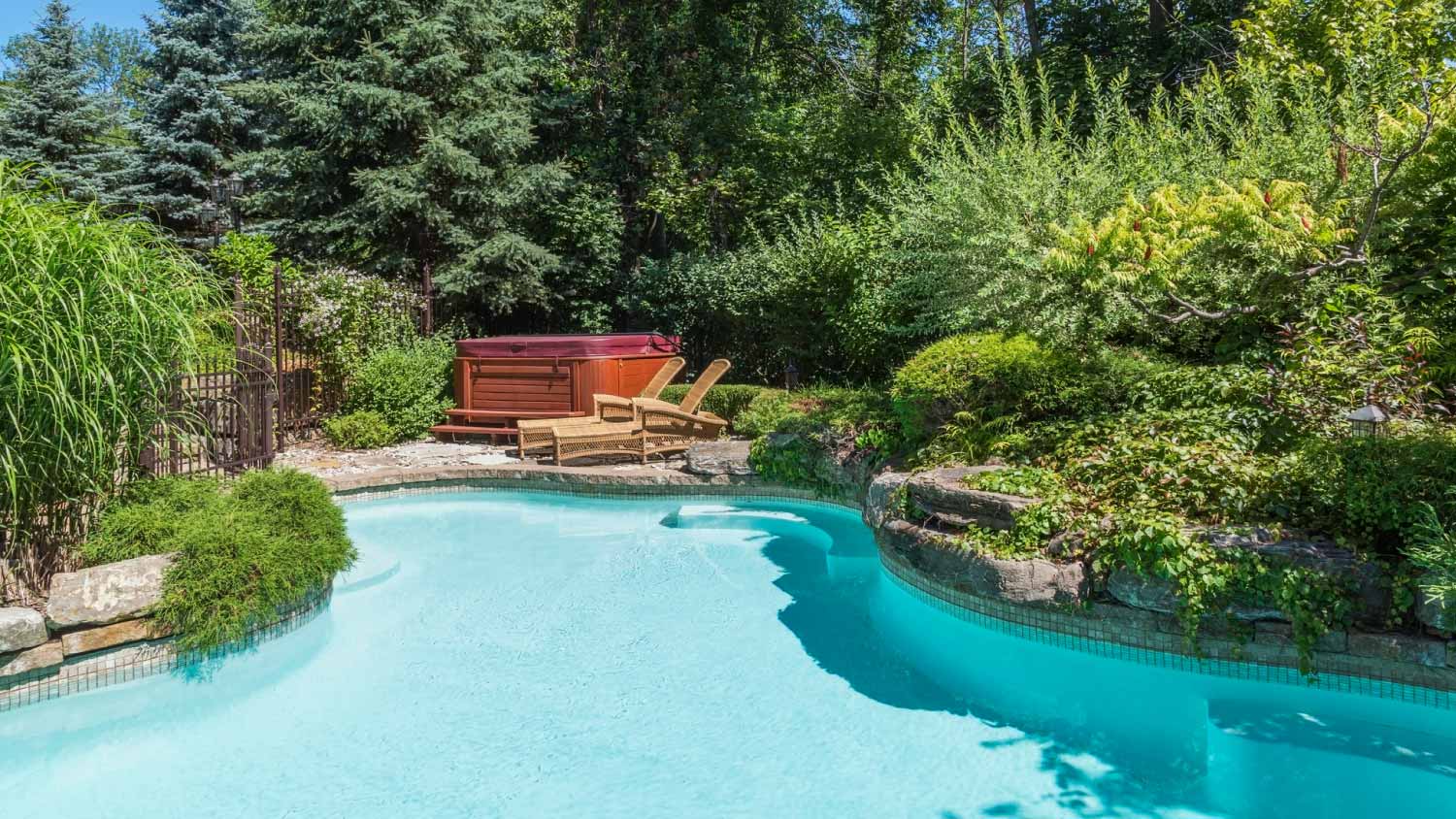
How much shock does my pool need? Here's how to calculate how much pool shock to add to your pool based on its overall water condition.
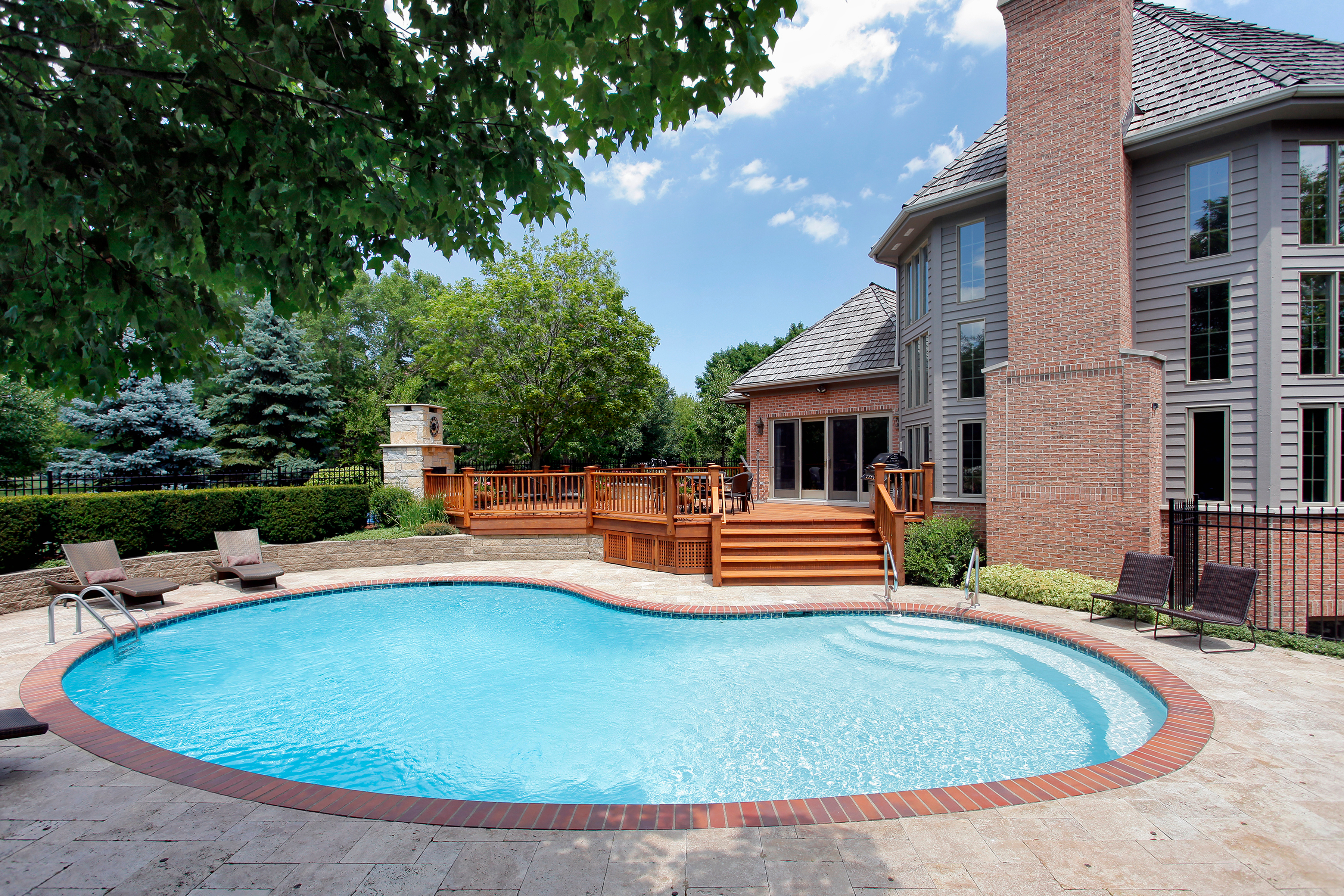
Installing a pool? Use this comprehensive pool inspection checklist before taking a plunge.

Swimming pools come in many sizes, but this pool size chart will simplify your choices and give you tips on how to choose the perfect size for your space.